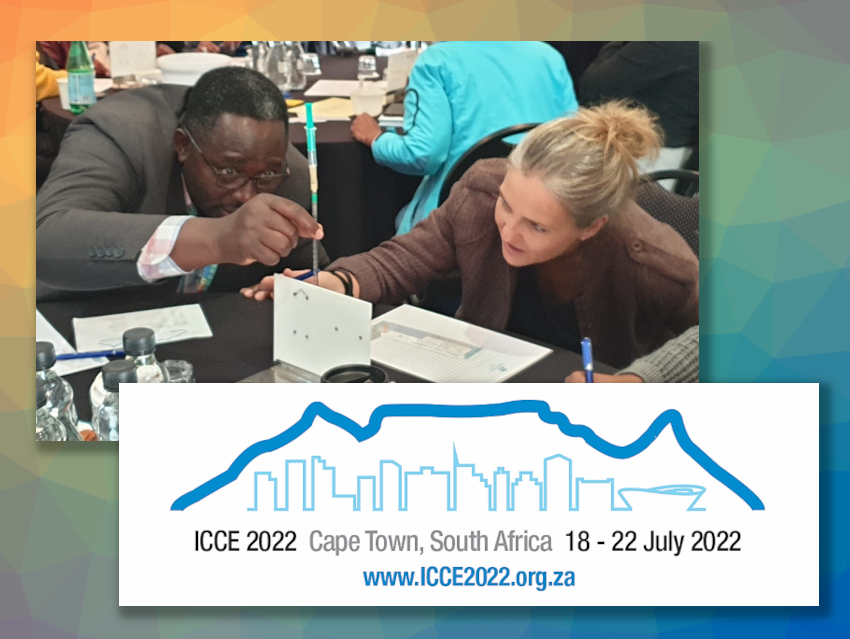I am just back from attending the International Conference on Chemistry Education (ICCE) that was held in Cape Town, South Africa, from July 18 to 22, 2022. I left Spain in one of the worst heat waves of the last decades. Wildfires raged across Europe, and many cities, from China to Iran, were hitting temperature records. Because of that, both the location of the conference (in a cool Cape Town in the middle of winter) and the theme of the conference, connecting chemistry education and sustainability, could not have been more appropriate.
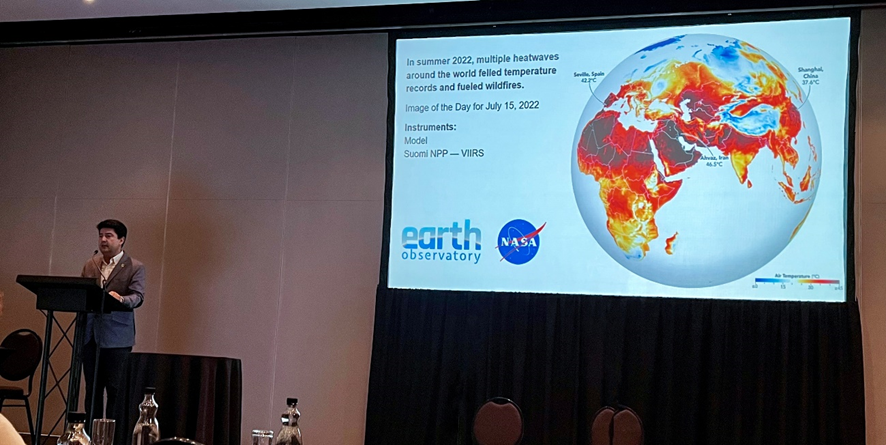 |
|
Welcome address during the opening ceremony of the International Conference on Chemistry Education held in Cape Town, South Africa, from July 18 to 22, 2022. |
A Call for Action
This conference also took place at an appropriate time, just days after the launch of the International Year of Basic Sciences for Sustainable Development (IYBSSD). The Opening Ceremony at the UNESCO headquarters in Paris, France, was a celebration of what science is doing to improve our quality of life, create jobs and wealth, and help us understand our interaction with the Planet. However, it was also a call for action to create and implement the solutions we so desperately need to achieve the Sustainable Development Goals (SDGs) on time.
The ICCE2022 started on July 18, which is Nelson Mandela International Day. He was the one who once said, “Education is the most powerful weapon you can use to change the world.” Those words were an inspiration to all the participants and a constant reminder of the importance of chemistry education to inspire and equip a new generation of chemists to tackle the most pressing challenges of our time.
Best Practices in Chemistry Education
One of the main goals of the ICCE conference series is to present and discuss the best practices, resources, and technologies in chemistry education. For example, for years now, many of the members of the IUPAC Committee on Chemistry Education have been involved in promoting the use of systems thinking as a way to introduce chemistry considering its many interactions with human activity, the environment, and the molecular world.
Only a few days ago, the King’s Centre for Visualization in Science launched its own platform and resources on Planetary Boundaries, as a way to better understand how the resilience of the Earth and the risks that human activities destabilize the system interplay.
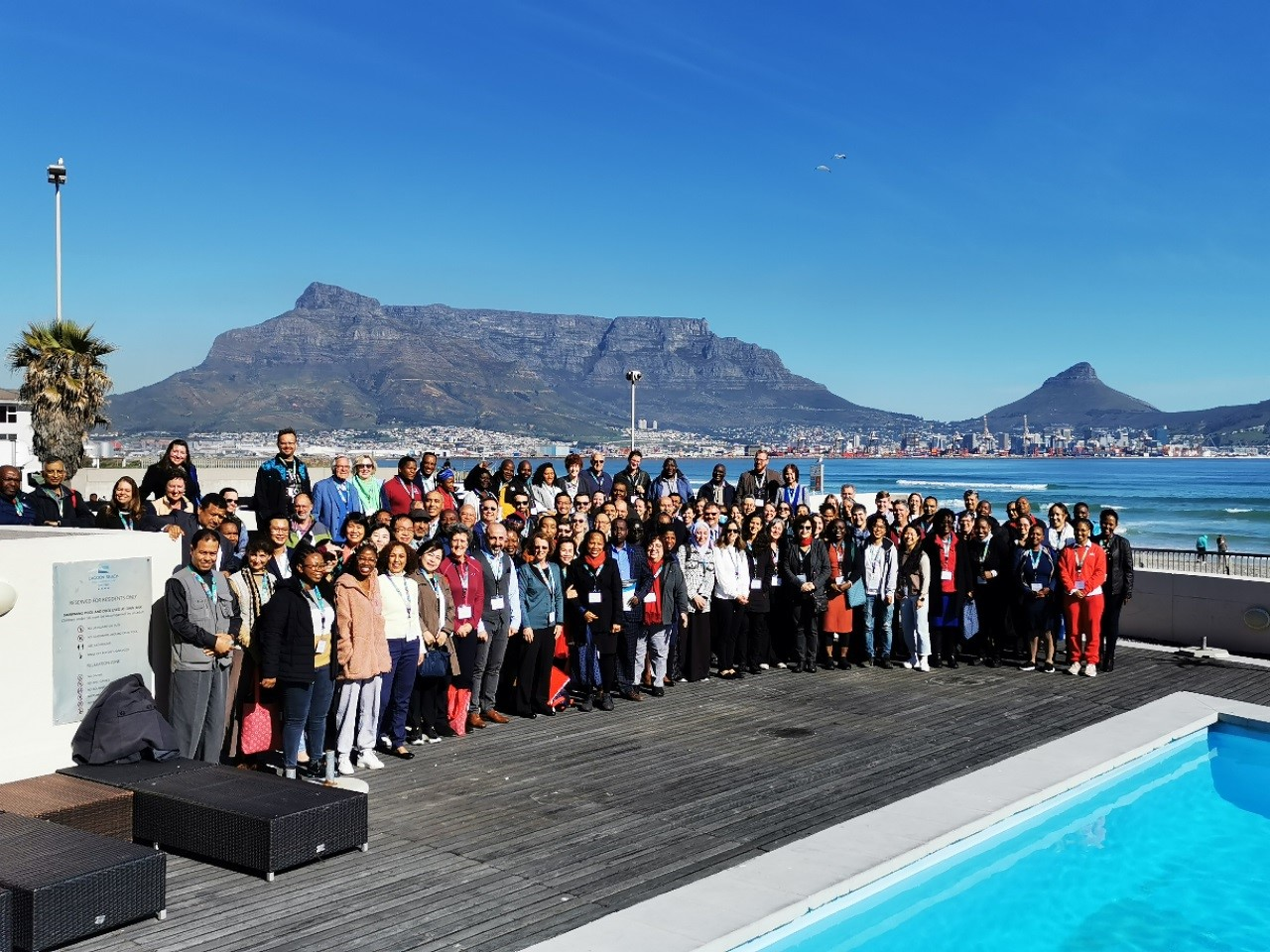 |
|
Participants of ICCE 2022 |
Among the plenary lecturers, I would like to highlight Professor Thomas Holme, who talked about the role of systems thinking in foundational chemistry: connecting chemistry content to earth and societal systems. I also want to mention the different workshops that were organized to explain in a very practical way the best practices in chemistry education and how to implement some of the current trends in the field in the classroom.
At IUPAC, we are promoting many educational activities to promote a more sustainable use of chemistry and to advance the 2030 Agenda. For example, on September 25 and in partnership with the International Younger Chemists Network (IYCN), we will be celebrating the Global Conversation on Sustainability, an initiative that coordinates individual lectures, panel discussions, world cafés, and other formats organized by engaged individuals and organizations.
Teacher Day
As part of ICCE2022, the Local Organizing Committee organized an activity to contribute to the local chemistry education community. On Friday, July 22, we had Teacher Day, a day-long hands-on event with lectures and workshops to share with chemistry teachers from the region the new trends and best practices in chemistry education. This initiative led by René Toerien, a teacher at a local high school, included a variety of hands-on and heads-on activities to motivate and excite science teachers, making them think about their teaching and connecting them to other chemistry educators in the region and beyond.
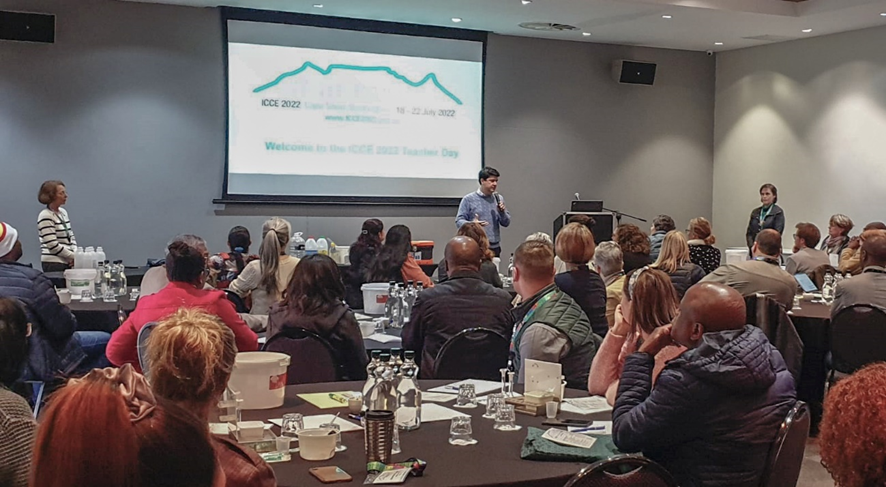 |
|
Addressing local teachers during the Teachers Day held on July 14th with over 100 participants from South Africa. |
Among the different activities organized during Teacher Day, I would like to highlight the workshop “Accessible Chemistry – the success of small-scale laboratory kits“, in which the participants learned about how to use these kits to be able to do chemistry experiments with their students, even in communities with very few resources. These kits were designed by some South African teachers to be used with students in small-scale experiments, especially when the schools don’t have proper chemistry labs, but can be adopted in any country. The kits can be used in any country.
In the afternoon, teachers learned about the Periodic Table Challenge, an online quiz (now available in seven languages) organized by IUPAC which presents you with randomly chosen multiple-choice questions about the elements. This represents a wonderful tool to introduce gamification in chemistry education and to learn about the importance of chemistry in our daily lives.
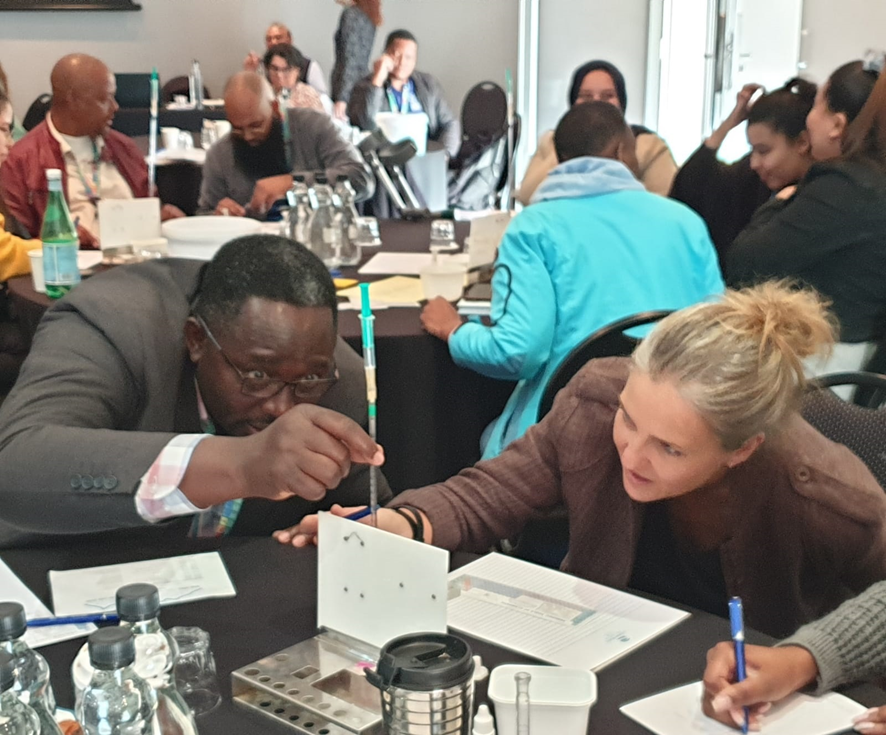 |
|
Teachers performing small-scale experiments that then they can use with their high school students. |
Young Ambassadors of Chemistry
On Saturday, after most of the conference participants already headed home, a group of volunteers from local universities and some members of the IUPAC Committee on Chemistry Education organized the 2022 Young Ambassador of Chemistry (YAC) Open Day at the Cape Town Science Centre. The YAC program is one of the main CCE activities that started in 2004 in Egypt and has been held in cities all around the world since then. Over 700 kids and their families, including several school groups, participated in a series of chemistry demonstrations and many of them engaged in a conversation with the IUPAC President about the future of chemistry.
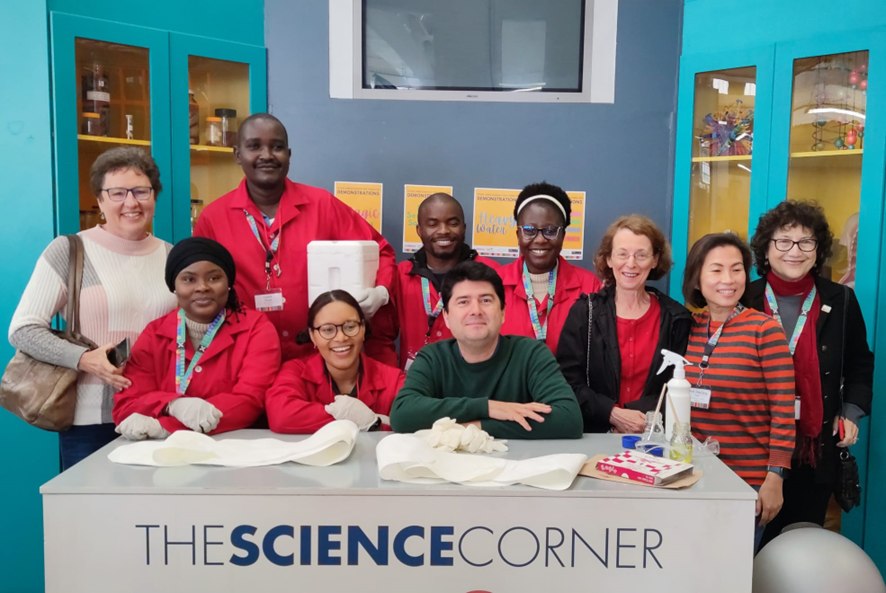 |
|
Group pictures of the IUPAC volunteers and staff members of the Cape Town Science Centre during the Young Ambassador of Chemistry (YAC) Open Day held on July 23. |
Connecting with the University Community
One of the best experiences of my stay in South Africa was my visit to three of the top universities in the region, University of Cape Town, University of the Western Cape, and Stellenbosch University. There, I had the opportunity to interact with students and faculty members, learn about their needs, and share with them the resources and initiatives we have in IUPAC for them. I had the opportunity to give the lecture “Circular Chemistry: How to Build a New Economy at Molecular Scale” and to engage in a conversation with the university community about the role of chemistry in building a more sustainable future.
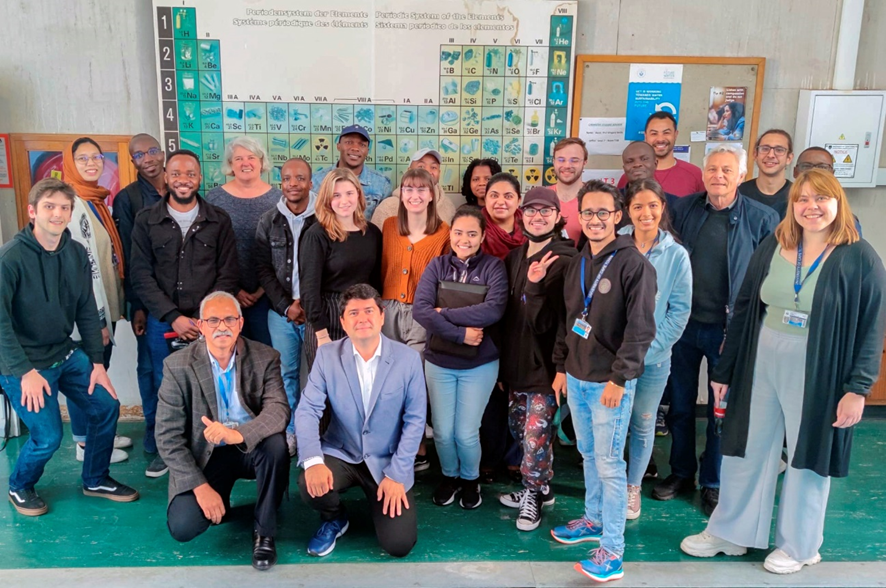 |
|
Students and faculty members of Cape Town University after giving the lecture and before we enjoyed a conversation on how IUPAC can better serve the chemistry community of the region. |
Transformation Is All About People
I would like to use this opportunity to mention that from September 5 to 9, 2022, the next IUPAC Green Chemistry Conference will be held in Athens, Greece. That will be another great opportunity to share the latest advances and move the green chemistry agenda forward.
As I am finishing this report of a fantastic week in South Africa, in which I could contribute to the efforts that IUPAC is doing in the chemistry education area, interact with faculty members and students in some local universities, and be part of a wonderful science outreach activity in the Cape Town Science Centre, I have a smile on my face knowing that IUPAC has contributed to making a difference.
Sustainability is the future and education is the way forward because transformation is all about people. And on this note, I would like to use this opportunity to thank Marietjie Potgieter, Chair of the IUPAC Committee on Chemistry Education (CCE), and Bette Davidowitz, Chair of the Local Organizing Committee for ICCE2022, and all the volunteers for making all of this possible and for contributing to creating a more connected, informed, and impactful global chemistry education community.
Javier García Martínez
IUPAC President
